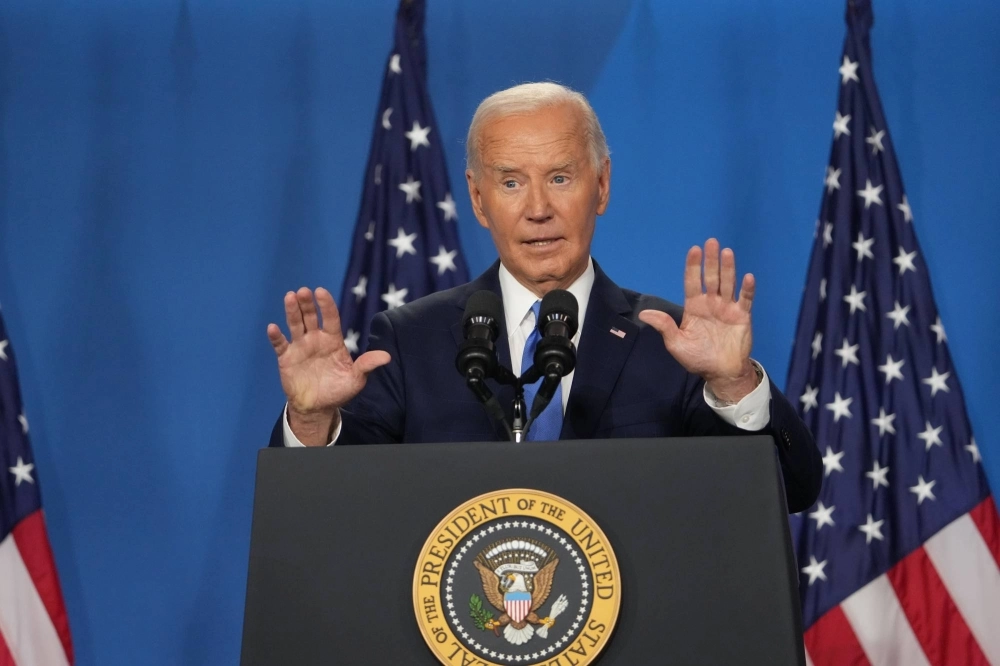U.S. President Joe Biden delivered a series of sometimes shaky answers to questions from reporters during a nearly hourlong news conference Thursday, but he also demonstrated a command of foreign policy and avoided repeating the worst moments of the presidential debate two weeks ago that set off turmoil within his party.
After initially reading from a teleprompter and repeating his vow to stay in the race, Biden tried to defuse some questions about his age and fitness for office, but at one point fumbled on a question about Vice President Kamala Harris, saying that he "wouldn’t have picked Vice President Trump to be vice president” if he didn’t have confidence in her. That came shortly after he introduced President Volodymyr Zelenskyy of Ukraine as "President Putin” at a NATO meeting.
The solo news conference, his first in eight months, was designed to demonstrate that he remains capable of the nimbleness and stamina required to prosecute the case against former President Donald Trump. He stood before the reporters amid news that some longtime advisers and allies are said to be considering ways to convince him to end his candidacy.


















With your current subscription plan you can comment on stories. However, before writing your first comment, please create a display name in the Profile section of your subscriber account page.